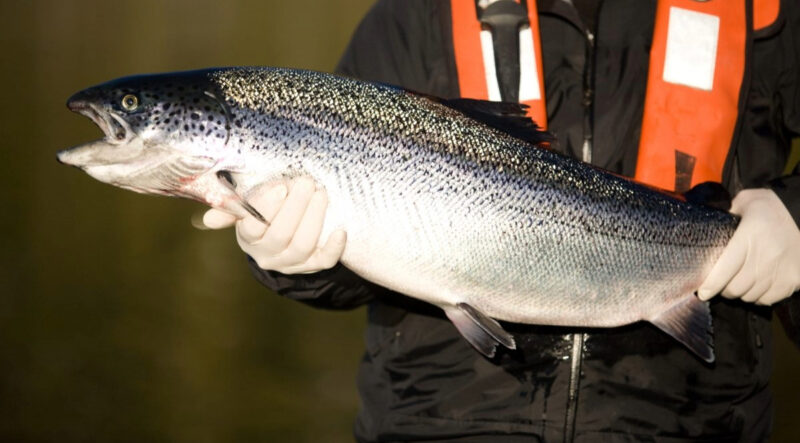Salmon farmers ranked as world’s top protein producers
Aquaculture companies, like Mowi and Grieg Seafood, continue to outperform land-based protein producers on all risk factors.
By Fabian Dawson
SeaWestNews
Salmon farmers continue to produce the most sustainable animal protein in the world, according to the latest edition of a global index that ranks companies in responsible food production.
Topping the Coller FAIRR Protein Producer Index for the fifth consecutive year is Mowi, which produces one-fifth of the world’s farm-raised salmon at facilities in Norway, Scotland, Canada, Chile, Ireland and the Faroe Islands.
Mowi is joined in the top three ranked companies by fellow aquaculture companies Lerøy Seafood Group ASA and Grieg Seafood ASA.
Both Mowi and Grieg have open-net farming operations in British Columbia, which are the subject of a transition plan being worked on by the Government of Canada.
The Coller FAIRR Protein Producer Index is the most detailed assessment of the largest meat, dairy and farmed fish producers in the world.
Speaking about Mowi’s ranking, CEO Ivan Vindheim said: “This shows again that Mowi is at the forefront of sustainable food production. I am proud and humbled to lead an organisation that is a recognised leader in sustainable food production.”
Mowi has consistently scored at the top of the index since its inception, due to its robust policies on responsible sourcing, animal welfare, environmental sustainability and more.
“Our ultimate goal is to unlock the potential of the ocean to produce more food for a growing world population in a way that respects our planet, so we are extremely proud to be named the most sustainable protein producer and see our hard work recognised once again,” said Mowi’s Chief Sustainability and Technology Officer, Catarina Martins.
The latest report found that aquaculture companies, primarily salmon companies, continue to perform better than land animal protein producers.
“Aquaculture companies continued to outperform landbased protein producers on all risk factors. They recorded a 9% increase in average score, with every risk factor seeing a rise in performance – especially deforestation, water use and scarcity, animal welfare and governance,” the report said.
This is the sixth edition of the Coller FAIRR Protein Producer Index, which assesses 60 of the largest listed global meat, dairy and aquaculture companies on ten environmental, social and governance factors aligned with the United Nations (UN) Sustainable Development Goals.
The Index provides financial institutions with best-in-class data, analytics and trends related to the protein sector, helping inform investment decisions and engagement strategies.
The report said aquaculture continues to be the food-producing sector with the highest annual growth rate.
“Environmental change, population growth and a decline in naturally occurring fisheries and food availability suggest coastal and open-water aquaculture will continue to play an increasing role in food security over the coming decades.
“Major aquaculture companies in particular are also increasing their expenditure on R&D related to alternative feed. FAIRR’s engagement with these companies has shown the health and welfare of salmon to be key considerations when selecting alternative ingredients.”
The latest Index comes as the Federal Government works on a transition plan that will determine the future of salmon farming in British Columbia.

